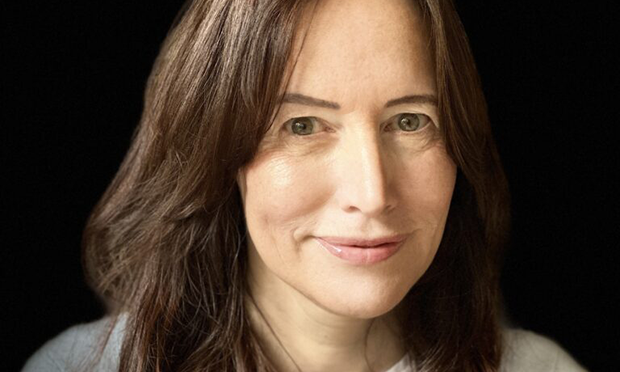Hackney children exposed to verbal abuse could face long-term mental health effects

Jessica Bondy, founder of Words Matter. Photograph: Words Matter
Experts have warned verbal abuse could cause lasting effects to the brain development of children across the UK, as MPs assess the national mental health strategy.
A team from charity Words Matter met with the parliamentarians at the end of last month and urged them to tackle the issue.
The latest data from a survey conducted by the Children’s Commissioner for England found almost a quarter (23 per cent) of youngsters aged nine to 17 in Hackney reported being unhappy with their mental health.
Words Matter founder Jessica Bondy said: “Neuroscience shows clearly that verbal abuse profoundly harms children’s developing brains.
“If the government truly wants the healthiest generation in history, tackling verbal abuse must become a core part of the national mental health strategy.”
Experts have warned continued exposure to verbal abuse impacts a child’s feelings of self-worth and their ability to create healthy relationships.
Carlotta Bozzetti, a child and adolescent psychotherapist and a Hackney resident, said: “The brains of both young children and adolescents are in a critical phase of growth and restructuring.
“Chronic stress from verbal aggression exposure can affect brain structure and impair their ability to regulate emotions, trust others, and form healthy bonds later in life.”
But with stress and shouting often being symptoms of socioeconomic struggles, Bozzetti said more needs to be done to support families in deprived areas.
“Prevention is not a luxury, it is a lifeline,” she said.
“If we want to protect kids’ mental health we need to act early. Investing money and resources in community-based settings like schools and local family support hubs could make a big difference.
“School settings represent, in my opinion, a great resource because changes in behaviour that may be linked to chronic verbal abuse could be spotted at an early stage, and support could be offered if specialist mental health support was consistently embedded in schools.”
The latest data revealed an income deprivation rate which is 1.8 times worse in Hackney compared to other London boroughs, and a 43 per cent child poverty rate.
Clinical psychologist and founder of The Psychology Co-operative, Emma Svanberg, further echoed the consequences of socioeconomic difficulty on people’s stress levels.
“When adults are in a high-stress situation, it is inevitable that they have less capacity to show up how they would like for their children,” said Svanberg.
“As parents it is our responsibility to resolve problems for our children, but when services that people go to in order to seek help then take a blaming-or-shaming approach, it can be very hard to seek further support, and many families end up fighting for minimal help.
“One thing we can all do if we work with families is listen with compassion to the experience of that family.”
Leading experts have also warned MPs that verbal abuse of children by parents and teachers is widespread and requires action.
Two in five children (41 per cent) in the UK are subjected to verbal abuse some of the time or regularly, according to a research study in 2023.
Curtis Worrell, director of Class 13, an educational London-based charity dedicated to creating systemic change in schools, said: “We predominantly need teachers to think about their practices, but more so we need them to try and think about the ideology that sits underneath that practice.
“We need to offer an alternative, because I think for too long, when we look around Hackney, most of the schools are very similar in their approaches to behaviour management.
“It’s the reason why Hackney has more excluded children than any other borough in London.”
Data taken from 2016 to 2024 showed that overall, Hackney’s permanent exclusion rate (0.1 per cent) was twice the inner London average (0.05 per cent).
Hackney’s suspension rate, at 8.2 per cent, was also significantly higher than the regional average of 5.3 per cent.
Worrell highlighted the importance of building relationships and a sense of value in young people to encourage connection between teachers and pupils, rather than relying on punitive measures.
“We can’t scare young people into learning,” he said. “We have to build a relationship for them to learn.
“If you look at somewhere like Starbucks, they want to write your name in a cup because they want you to feel affirmed and important.
“I’m saying we can do that in the classroom and that means that we have to understand it’s not a teacher and 30 children, it’s 31 people in a room who have the ability to support each other to success.
“Because that information shouldn’t just come from one person, it has to come from everybody in that space.”
